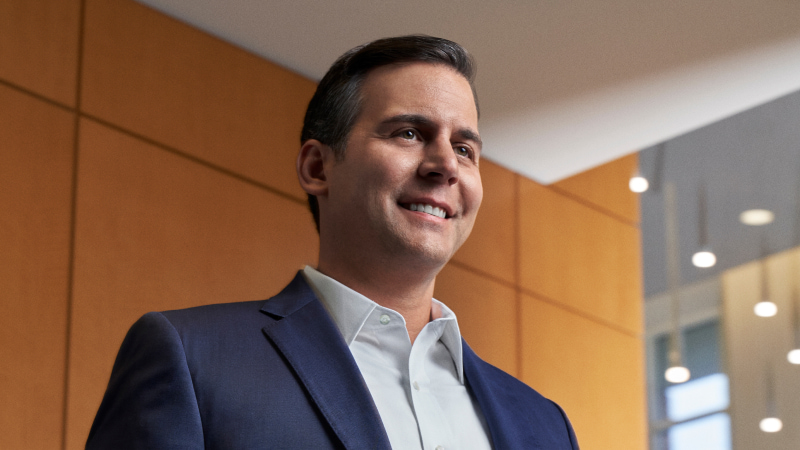Navy veteran Pierce Murray is no stranger to high work standards, team leadership and efficient time management. After 13 years as a naval officer, they are qualities he's mastered and that are core to who he is.
Before Murray moved to Ohio, he was uncertain how he would successfully transition from military service into the corporate world. “I talked to a lot of colleagues about my military experience, and they helped guide me as I made the transition into the corporate world,” says Murray. One of those conversations was with a friend from the Navy who was starting at JPMorganChase’s Columbus office. He told Murray about how the firm supports and fosters opportunities for the military and veteran community, including through the Military Pathways Development Program, and that thousands of veterans work at the company in Ohio alone.
“What attracted me to JPMorganChase was their industry reputation, global presence and track record with supporting veterans," says Murray. “Opportunities like the Military Pathways Development Program empowered me to use my skills as a veteran while giving me training I needed to be successful at the firm."
Murray sat down with us to talk about how his time in the Navy has translated into a meaningful career and his passion for mentoring fellow veterans.
You entered JPMorganChase through the Military Pathways Development Program. What was that like?
It was fantastic! You go through two one-year rotations and choose different lines of business to explore. It is really a great program for military members who have strong leadership experience, are adept at crisis management and have a broad skillset but may not have a traditional banking or financial services industry background. We are given the opportunity to explore different roles and land in a permanent role at the end of the two-year program.
How did you land your current position at JPMorganChase?
When I came into this program, I knew that I wanted to continue as a people leader, but I did not know what line of business made sense for me. But my catch phrase from the Navy is “we jump into a fire, we jump into a crisis, and we figure things out — we get things going in the right direction," which has served me well here.
I talked to a lot of colleagues about my military experience, and they helped guide me as I made the transition into the corporate world and recommended Consumer and Community Bank Operations. That made so much sense to me and felt like the right fit given my experience leading teams as a naval officer.
How have the veteran resources at JPMorganChase been helpful to you?
For me, the most beneficial veteran resource at Chase has been the Voices for Employees That Served (VETS) Business Resource Group.
With VETS, it is a perfect acronym! It just fits. It's for veterans, their spouses, family members and allies. You have a built-in network of people who you can reach out to at any time and ask anything, personal or professional. Within this business resource group that focuses on veterans, there are employees from all military branches with varying times in service. So, you can network with the full spectrum of military experience.
Have you become a mentor to others?
Yes. I have supported many veterans transitioning into the civilian world, as well as those interested in a career at JPMorganChase. It is my mission to help others as I was helped during my own journey. I have opened my network to others to link their interests and desires with people I know. I would liken it to matchmaking. I have connected interested veterans with recruiters, hiring managers, program managers and other fellow veterans. I enjoy making the connections, many of which have ended in job placements across the country at JPMorganChase.
Why do you think it's important for organizations to invest in veterans?
Recent demographic information shows roughly seven percent of the U.S. population served in the armed forces in some capacity. These are citizens, like everyone else, some of whom were placed in the extremes of the human condition. Veterans bring a myriad of experiences to the workforce — from stress coping mechanisms to analytical approaches and mental endurance. Veterans can add instant value and contribute to overall company success as soon as they fly or march or sail into a new civilian role.




